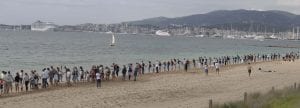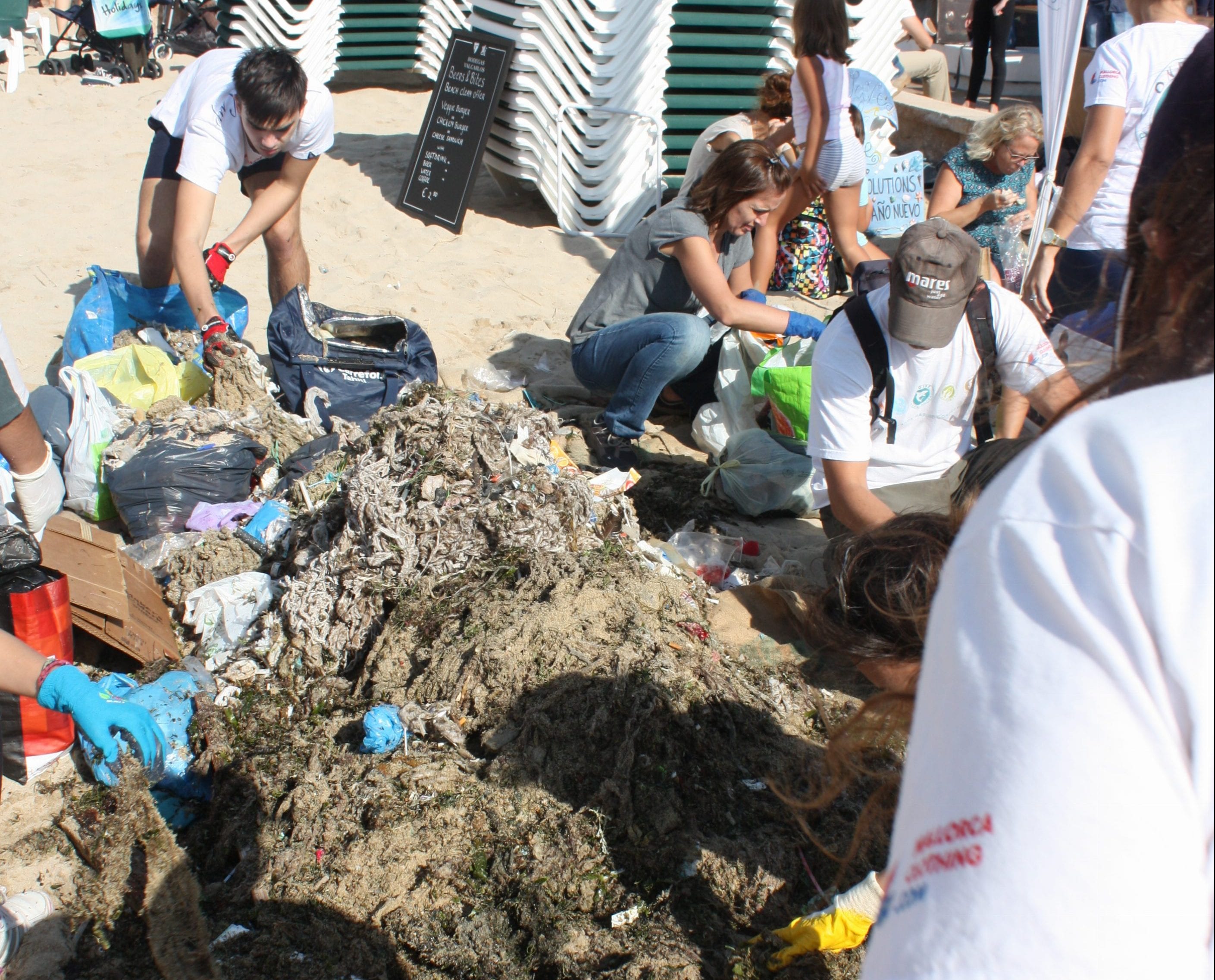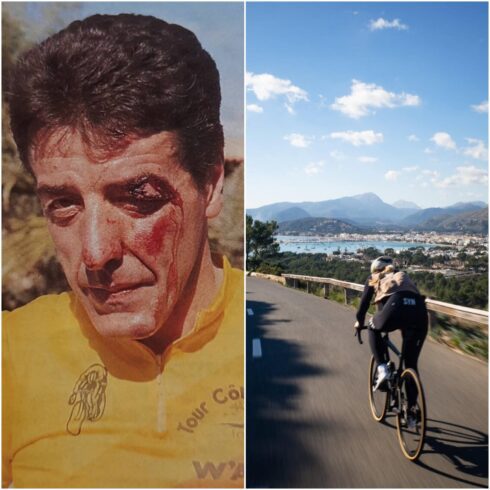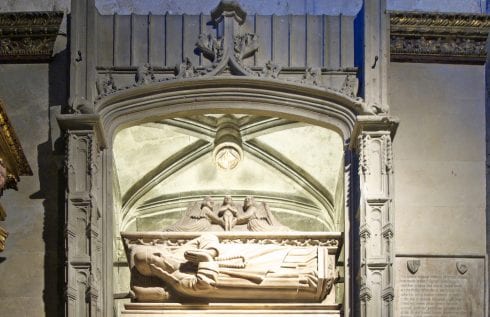SUNDAY morning on Palma’s Can Pere Antoni beach, and a Dos Manos clean up is underway. Dozens of volunteers, young and old, comb the sand for rubbish. Some of what they pluck out is not for the faint-hearted.
“One little boy found some sanitary towels,” a volunteer says. “I didn’t even have the heart to tell him.”
This summer, Can Pere Antoni has seen a decidedly unpleasant brew of pollutants. Raw sewage gushing into the sea, plastic pollution littering the beach and molten slags which – campaigners believe – escaped from building work at Palma Port have all contributed to the problem. The beach even lost its coveted blue flag as a result of the detritus.

Can Pere Antoni’s issues have spurred Australian environmentalist Brad Robertson and others into action. The diving instructor and founder of marine research group Asociación Ondine, put out the call for volunteers to clean up the beach. By 11am, around 150 have assembled.
“We decided to do it at Can Pere Antoni because it’s one of the most polluted, filthy beaches on the whole Balearic Islands,” Brad tells the Olive Press.
“On a local level, the sewer system here in the Bay of Palma is a disaster and needs a massive upgrade. Every time it rains it gets bypassed so you have got the storm water and the sewer going in the same filtration system. Now when we get rain it goes straight in the sea.
“That’s why if you are walking down the Paseo on a rainy day and you look out onto the water you will see a nice big brown patch.”
He added: “People need to realise that all this sanitary waste that is coming through our toilets – your toilets – shouldn’t be put in the toilet in the first place.”

The Dos Manos clean-up, arranged after the summer season crowds have departed, is just one facet of Brad’s environmental work on the island.
With Asociación Ondine, Brad and the team have worked alongside the Balearic government to create Marine Protected Areas (MPAs). These havens to replenish marine ecosystems and fish stocks under threat are created using rigorous scientific data provided by Ondine’s expertise.
So far, eight marine reserves and one marine national park – less than 6% of the Balearic waters – are now protected. The island of Sa Dragonera is the most recent addition.
But on dry land, the need for action is no less pressing. And while today’s clean-up has a practical purpose, the day is also about educating the public.
“People think that on an individual level they don’t have the power to change anything. But our population is so large that if we all do something positive it is a big change,” says Brad.

“In the Balearic Islands and Mallorca there are traditional local markets and stalls. You don’t need to go to the big supermarkets.
“If everybody on the Balearics went to local markets and took their reusable bags the reduction in our own plastic pollution that we generate from our homes would be absolutely massive.
“If we take a few steps backwards and embrace those traditions we are going to have a massive change here on the islands. So Carrefour, take note!”
The burned plastics that have mottled Palma’s shores this year are another cause for concern.
“To my understanding, it’s only in Mallorca we have burned plastic in the sea as a base for construction. We have created our own unique type of plastic pollution here,” he adds.
On Sunday’s clean-up, some 900 kg of rubbish including razor blades, syringes, cigarette butts and sanitary waste was collected on a stretch of beach no more than 500 metres long and 30 wide. A haul of shame.

This is despite local authorities getting wind of the Dos Manos clean up and, in a damage limitation exercise, dispatching a clean-up tractor the previous night.
But nevertheless, says Brad, it’s vital residents, expats and local authorities work together to make the island cleaner.
“We are not battling against the government. These groups of people that come together we see as a positive step forward for the community to work together with the government to improve the Balearic Sea,” says Brad.









